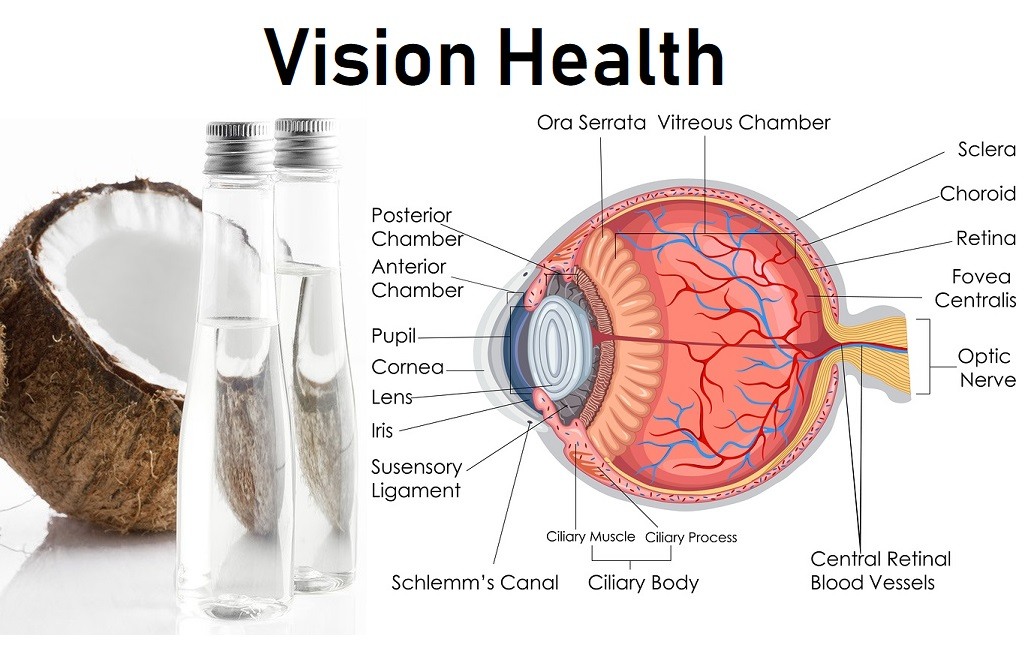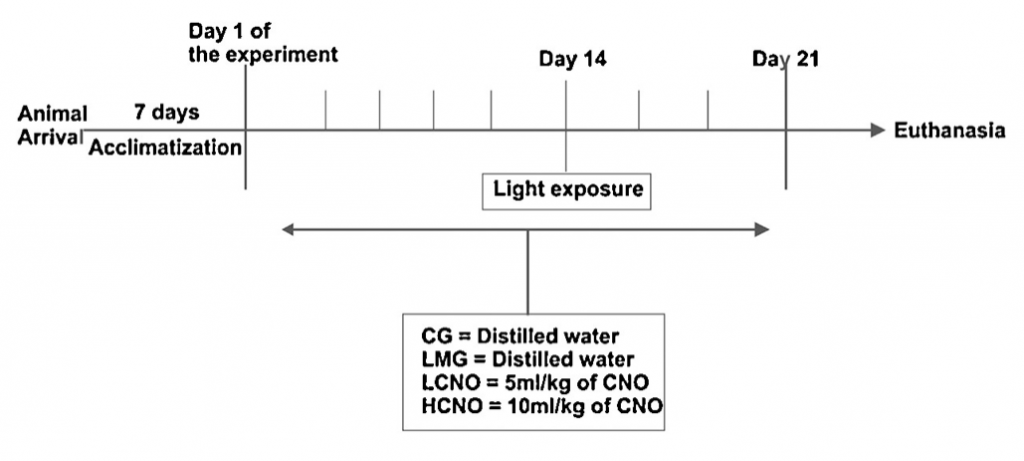Thursday, January 31, 2019
Why vitamin B levels are crucial to LOWER cardiovascular disease risk, brain shrinkage and vision loss
Why vitamin B levels are crucial to LOWER cardiovascular disease risk, brain shrinkage and vision loss
 (NaturalHealth365) As you probably know by now, heart disease – responsible for over 610,000 fatalities every year – is currently the leading cause of death in the United States. Yet, it’s still rare to see a conventionally trained physician talk about the role of vitamin B or any other nutrient for disease prevention. (their training is just not adequate – yet.)
(NaturalHealth365) As you probably know by now, heart disease – responsible for over 610,000 fatalities every year – is currently the leading cause of death in the United States. Yet, it’s still rare to see a conventionally trained physician talk about the role of vitamin B or any other nutrient for disease prevention. (their training is just not adequate – yet.)
For example, Research shows that vitamin B2, part of the complex of nutrients needed for normal body function, has the ability to lower levels of an inflammatory amino acid linked with heart disease, thereby reducing its risk. In addition, this amazing group of essential vitamins can relieve anxiety, lift mood, help to ward off Alzheimer’s disease, reduce age-related brain shrinkage and protect vision.
Unfortunately, deficiencies in the B vitamins – vitamin B12, in particular – are widespread in the United States, with individuals of mature years particularly vulnerable. But, let’s focus on avoiding this fate.
Who is at risk for vitamin B deficiencies?
The ‘vitamin B complex’ consists of eight separate nutrients: thiamine (B1), riboflavin (B2), niacin (B3), pantothenic acid (B5), pyridoxine (B6), biotin (B7), folate (B9), and cobalamin (B12).
Your body needs B vitamins to assist in the conversion of food to energy, maintain a healthy nervous system, and help produce red blood cells and DNA. Keep in mind, proper levels of B vitamins are particularly important in pregnancy, as shortages of vitamin B12 and folate can result in severe neurological damage to the infant or fetus.
Unfortunately, a variety of conditions and factors can threaten adequate vitamin B status.
FREE eBook: Get Jonathan Landsman's powerful, 21-page eBook, "Slash Your Risk of Chronic Disease and Infections," plus INSTANT access to the Immune Defense Summit. Get it today!
Hypothyroidism, anorexia, alcoholism, celiac disease, Crohn’s disease and certain genetic mutations can all increase susceptibility to B-vitamin deficiencies.
Elderly people are at particular risk for shortages of vitamin B12, due to age-related shortages of the stomach acid required to absorb the nutrient.
In addition, diabetes drugs (such as metformin), birth control pills and proton pump inhibitors (such as omeprazole) can decrease the absorption of B vitamins.
Finally, you may be at risk of developing a vitamin B12 deficiency if you are a vegan or strict vegetarian. Like any other condition, we must be careful to eat appropriately – based on individual health concerns.
Symptoms of vitamin B12 deficiency can include depression, weakness, digestive disturbances, tingling sensations in the limbs and cognitive problems. Cracking at the corners of the mouth can also be a tip-off.
A quartet of B vitamins can protect against elevated homocysteine
Four B vitamins in particular – B2, B6, B9 and B12 – can help reduce the accumulation of the amino acid homocysteine – elevated levels of which are associated with inflammation and cardiovascular disease.
When these four B vitamins are present in adequate levels, they help to convert homocysteine to the amino acid methionine. If any are lacking, however, homocysteine levels can begin to climb.
In a study published in Circulation, the participants had a specific genetic mutation that causes B-complex vitamin deficiencies – particularly of vitamin B2 – and elevated homocysteine levels.
However, the team found that supplementation with vitamin B2 (riboflavin) lowered homocysteine levels by almost 25 percent. They noted that lowering homocysteine by this amount could reduce stroke risk by 24 percent – and heart disease by 16 percent.
Other research has highlighted the link between B vitamins and heart health.
For example, in a study published in Nutrition, researchers found that even “borderline” deficiencies of vitamin B6 were linked with an increased risk of coronary artery disease.
B vitamins help to treat depression and prevent neurodegenerative disorders
Low levels of B vitamins can exert a grave toll on physical and mental health.
Shortages of vitamin B1, or thiamine, can cause oxidative stress, damage and inflammation in the brain – setting the stage for Parkinson’s disease, Alzheimer’s and other forms of dementia.
In addition, low levels of vitamin B12 are linked with accelerated rates of brain shrinkage – the loss of brain cells associated with many brain diseases.
Folate is also crucial for brain function, and studies have linked shortages of this nutrient with atrophy of the hippocampus – a section of the brain associated with memory.
Moreover, low levels of B vitamins – particulary folate – are associated with anxiety and depression.
Encouragingly, restoring levels of B vitamins is yielding promising results in clinical studies.
Studies have shown that supplementation with the active form of folate (5-MTHF) can not only relieve depression – but work in tandem with pharmaceutical antidepressants to increase their effectiveness and bring about more rapid relief.
In one influential study published in Innovations in Clinical Neuroscience, patients with depression who were given 5-MTHF along with SSRIs (selective serotonin reuptake inhibitors) experienced improvements in 85 days – as opposed to 150 days for those on antidepressants only.
Researchers concluded that the combination was more effective in improving depressive symptoms than SSRI antidepresants alone – and was better tolerated.
Finally, folate supplementation can inhibit the formation of beta-amyloid plaques, which many scientists believe are implicated in Alzheimer’s disease.
It’s official: B vitamins combat vision problems
We’ve already explored some of the grave problems that can result from vitamin B-complex deficiencies.
But did you know that shortages of folate (vitamin B9) can greatly increase your risk of age-related macular degeneration – a leading cause of blindness in people over 65, and one which already affects 48 million Americans?
One epidemiological study showed that folate deficiency was associated with an 89 percent higher risk of age-related macular degeneration – while shortfalls in vitamin B12 were found to be associated with a 2.56-fold greater risk of developing the condition.
In one placebo-controlled clinical trial published in Archives of Internal Medicine, women who took 2,500 mcg of folic acid (the synthetic version of folate), 50 mg of vitamin B6 and 1,000 mcg of vitamin B12 daily for an average of 7 years reduced their risk of macular degeneration by a hefty 34 percent.
Clearly, the benefits of vitamin B supplementation are easy to see (pardon the pun).
Protect your health with vitamin B complex supplementation
You can increase your dietary intake of B vitamins with organic beans, whole grains, potatoes, sunflower seeds, lentils and leafy greens.
Vitamin B12, however, is found only in animal products. To raise levels, opt for grass-fed beef liver, poultry, wild-caught salmon and cage-free eggs.
Because water-soluble B vitamins are rapidly flushed from the body, daily supplementation may be necessary to maintain healthy levels – especially if you are a vegan or vegetarian.
Experts advise taking vitamin B12 in the form of methylcobalamin, and vitamin B6 in the form of pyridoxal-5-phosphate.
Bonus tip: Inositol, a naturally-occurring carbohydrate, has been shown to act against anxiety.
While not technically a B vitamin, inositol is often found as an ingredient in some of the higher-quality B complex formulations. In one study, inositol’s ability to relieve anxiety, panic and OCD symptoms equaled that of fluvoxamine, a popular pharmaceutical antidepressant.
Naturally, you shouldn’t attempt to use B vitamins to treat anxiety – or any other psychological or physical condition – unless you are under the guidance of a trusted and knowledgeable integrative physician.
For protection against cardiovascular disease, depression, neurodegenerative disease and loss of precious vision, research suggests that maintaining healthy levels of life-sustaining B vitamins really is the “ticket.”
Editor’s note: The NaturalHealth365 Store offers the finest quality, vitamin B12 on the market. Click here to shop now.
Sources for this article include:
Silymarin helps to fight cancer, liver disease plus many metabolic disorders
Impressive RESULTS: Silymarin helps to fight cancer, liver disease plus many metabolic disorders
 (NaturalHealth365) According to the U.S. Centers for Disease Control and Prevention (CDC), the number of cancer deaths in the United States nearly tripled between 1950 and 2011, increasing from 210,733 fatalities per year to 576,691. Unfortunately, natural (cancer cell killing) substances like, silymarin have been largely ignored by the mainstream media and Western medicine.
(NaturalHealth365) According to the U.S. Centers for Disease Control and Prevention (CDC), the number of cancer deaths in the United States nearly tripled between 1950 and 2011, increasing from 210,733 fatalities per year to 576,691. Unfortunately, natural (cancer cell killing) substances like, silymarin have been largely ignored by the mainstream media and Western medicine.
The numbers don’t lie: Cancer remains the second leading cause of death in the nation, right behind heart disease. To make matter worse, rates of metabolic conditions – including type 2 diabetes, obesity andnonalcoholic fatty liver disease – are increasing at an alarming rate.
Fortunately, silymarin – the active ingredient in milk thistle – is showing potential in preventing health issues like, liver disease. Milk thistle, botanically known as Silybum marianum, has been used for centuries by natural healers. Today, we’ll take a closer look.
Silymarin can LOWER inflammation and improve insulin sensitivity, study reveals
In a double-blind, randomized, placebo-controlled multicenter trial involving 179 participants and published in Free Radical Biology and Medicine, patients with NAFLD were given silybin (a form of silymarin) daily for a year – while a similar group received placebo.
The silybin was administered along with phosphatidylcholine (lecithin) and vitamin E. The researchers found that the combination, coupled with standard dietary and exercise recommendations, worked significantly better than diet and exercise alone to reduce liver size and abdominal fat.
Insulin sensitivity was improved as well. Further, 36 of the participants had been diagnosed with hepatitis C – and these individuals experienced significant improvements in liver enzyme levels, when compared with the control group.
FREE eBook: Get Jonathan Landsman's powerful, 21-page eBook, "Slash Your Risk of Chronic Disease and Infections," plus INSTANT access to the Immune Defense Summit. Get it today!
In addition, 85 percent of the study participants were either overweight or obese. The team reported that this group improved their body mass by 15 percent – supporting silybin’s ability to promote healthy weight.
Past research has highlighted the ability of silymarin and silybin to stop nonalcoholic fatty liver disease from progressing to nonalcoholic steatohepatitis (NASH), a more dangerous form of the condition that can lead to liver scarring, liver cancer, liver failure and death.
But, silybin is showing potential for acting against other serious conditions as well – including obesity, diabetes, metabolic syndrome and hepatitis C.
Remarkable benefits: Silymarin stimulates liver regeneration and boosts antioxidant status
Milk thistle – and its active constituent, silymarin – has excited interest among researchers because it has two properties that combine to make it a sort of “Holy Grail” of natural liver remedies. For example, it stimulates liver regeneration while it replenishes and protects stores of glutathione – the body’s “master antioxidant.” (And, it is virtually free of serious adverse effects).
As a potent detoxicant, silymarin also inhibits the binding of toxins to cells. As a result, this potent flavonoid can decrease and even reverse liver damage from medications, alcohol, industrial chemicals, pesticides and heavy metals. It also protects against various viruses, including hepatitis B and C.
Animal and human studies have shown that silymarin even has some ability to reverse the deadly effects of the “death cap” mushroom – the lethal Amanita phalloides (responsible for 90 percent of all mushroom poisonings).
Silymarin protects against obesity by assisting with the breakdown of fats. It also lowers blood sugar – a fact reflected by lower HbA1c scores (a measure of blood sugar over time) in studies – and decreases levels of LDL cholesterol.
This means that silymarin offers potent ammunition against metabolic syndrome – a linked cluster of unhealthy conditions that includes excess abdominal fat, elevated blood sugar levels, elevated blood pressure, elevated LDL cholesterol and high triglycerides.
Health ALERT: Silymarin has anticancer effects
A potent antioxidant and anti-inflammatory agent, silymarin boosts the immune system, protects DNA against mutations that could trigger cancer, and even reverses the growth of tumors.
These abilities have been supported by studies that evaluate silymarin’s effects on liver cancer cells.
While liver cancer has a notoriously poor prognosis, recent research has sparked hope – and encouraged researchers to call for further studies.
For example, in an animal study published in 2013 in Molecular and Cellular Biochemistry, dietary administration of silymarin inhibited the proliferation of liver cancer cells, and activated apoptosis (the programmed “suicide” of cancer cells). The team reported that the flavonoid also decreased levels of cancer-promoting proteins, and activated glutathione.
Good to know: Silymarin’s cancer-fighting effects aren’t confined to liver cancer. It has been shown in studies to induce cell cycle arrest and apoptosis in ovarian and cervical cancer cells, as well as in cancers of the breast, prostate, lungs and colon.
An animal study in 2012 showed that silymarin increased apoptosis in skin cells that had been damaged by ultraviolet radiation, while promoting repair of sun-damaged cells.
And, silymarin features another yet important benefit for cancer patients.
According to The American Cancer Society, milk thistle may help to protect against liver damage from toxic chemotherapy drugs such as cisplatin and doxorubicin.
In a Columbia University study, researchers found that milk thistle reduced liver inflammation and liver enzymes in children with leukemia who were undergoing chemotherapy. As a result, fewer of the children than in the control group had to reduce their chemotherapy dosage due to liver damage.
How should I take milk thistle for protective effects?
Milk thistle is available in capsule, tablet and liquid (liposomal) form. The seeds and leaves can also be steeped into a tea.
Natural health experts recommend taking a milk thistle extract that is standardized to at least 80 percent silymarin. For superior absorption and liver concentration, milk thistle should be taken in combination with lecithin, also known as phosphatidylcholine.
Generally speaking, milk thistle can be taken in dosages ranging from 140 mg to 600 mg per day. But, for liver detoxification, integrative physicians may recommend 450 mg a day in divided dosages. And, for longer-term liver support, dosages of 50 mg to 150 mg a day may be advised.
Keep in mind, this herb can cause mild gastrointestinal symptoms such as nausea, gas, bloating and diarrhea – only in high dosages. Of course, we suggest you consult with your integrative healthcare provider before supplementing with milk thistle – especially if you have a medical condition such as cancer or diabetes.
Special note: If you are allergic to any member of the aster family – which includes ragweed, chrysanthemums, daisies and marigolds – don’t take milk thistle.
Long trusted by natural healers for safe and effective liver support, silymarin-rich milk thistle is now proving its worth as a valuable ally against life-threatening diseases such as cancer and diabetes.
Editor’s note: LuvByNature Liposomal LiverLuv is my Number ONE pick for supporting liver health, detoxification and glutathione levels. Click here to shop now.
Sources for this article include:
Wednesday, January 30, 2019
Glutathione - A Powerful Anti-Aging Antioxidant - Dr. Sam Berne - Holistic Eye Care
Glutathione - A Powerful Anti-Aging Antioxidant - Dr. Sam Berne - Holistic Eye Care: Hey folks, it’s Dr. Sam and I received a question today about glutathione’s anti-aging properties. Well, there was a study published in 2017 in the Journal called Investigational Dermatology. Researchers took a group of subjects – this was a double-blind placebo based study – and they were given 250 milligrams of glutathione over a 12-week …
Tuesday, January 29, 2019
Study: Coconut Oil Prevents Macular Degeneration – Healthy for the Eyes
January 29, 2019
Study: Coconut Oil Prevents Macular Degeneration – Healthy for the Eyes
15
1
0
1
1
0
1
1

by Paul Fassa
Health Impact News
Health Impact News
A recent study published late 2018 confirms an earlier Health Impact News article that macular degeneration, a disease mainstream medicine considers irreversible, can be prevented, attenuated, and even reversed naturally.
The natural ingredient this study tested was coconut oil.
This study was conducted by Nigeria’s University of Ilorin’s Department of Physiology.
The final report, titled Coconut oil protects against light-induced retina degeneration in male Wistar rats was published by the journal Pathophysiology.
The Study Paper’s Major Points Summarized
Retina degeneration causes macular degeneration (MD), a major source of blindness characterized by a loss of direct frontal vision while retaining only some semblance of peripheral vision.
From the study text’s discussion section:
The photoreceptors and retinal pigmented epithelium are the parts of the retina that are most susceptible to visible light.Injury to these parts plays a crucial role in the pathogenesis of retinal degenerative diseases such as AMD are the parts of the retina that are most susceptible to visible light.Injury to these parts plays a crucial role in the pathogenesis of retinal degenerative diseases such as AMD. [Age-related macular degeneration] (Source)
The researchers noted that there have been several studies analyzing the properties of coconut oil’s main ingredients, which the researchers referred to throughout the abstract and study text as Cocos nucifera oil (CNO).
The researchers also mentioned that prior studies indicating CNO’s antioxidant and anti-apoptosis qualities could help prevent macular degeneration, but they were mostly in vitro (lab culture) studies. This current study is a rare solid animal (in vivo) study.
This article’s study summary will mirror that study’s nomenclature choice, using CNO (Cocos nucifera oil) instead of coconut oil while covering the study report.
Referring to several published studies in their references, the researchers noted coconut oil’s elements and attributes, such as:
- Pure CNO (virgin coconut oil) is made up of 50% lauric acid, its most effective constituent.
- Beneficial fatty acids such as palmitic, oleic, linoleic, caproic, and caprylic acids.
- Several phenolic compounds all proven to exert antioxidant activity.
- The research literature showed evidence of CNO’s neuroprotective aspects.
The Study’s Procedural Highlights
Twenty male Wistar rats weighing 140 to 180 grams were divided into four groups of five.
CNO was administered orally by cannulas, ie, lab animal feeding needles.
(1) The control group (CG) was not subjected to intense white light and was not given CNO.
(2) A light model group (LMG) was subjected to intense white light but treated only with distilled water.
(3) This was a low Cocos nucifera oil (LCNO) group. They were exposed to 5,000 lux of white light for two hours and received 5 ml/kg of CNO.
(4) The high Cocos nucifera oil (HCNO) group was treated with the highest level of CNO. They were exposed to 5,000 lux of white light for two hours and received 10 ml/kg of CNO.
To get an idea of the intensity of 5,000 lux used to induce retinal damage, a standard flashlight emits 125 lux of light. The researchers chose light-induced retinal damage over chemically-induced to replicate most real-life retinal damage over time.
The animals fed CNO were fed lower and higher amounts during the entire 21 days, but their intense two hour light exposure with chemically dilated pupils started on day 14. Otherwise, their environment consisted 12 hours of normal light with 12 hours of darkness.
The following schematic diagram is an overview of the study obtained from the study’s full text.
Study Results and Conclusion
After euthanasia, the animals’ eyes were carefully analyzed biochemically in addition to examining the eye tissues microscopically.
Biochemical assays showed that CNO treatments improved antioxidant defense while decreasing caspase activityfrom complex enzymes to determine apoptosis (programmed cell death) necessity and initiation.
Less caspase activity means more healthy cells are remaining and functioning because there are less damaged cells requiring caspase enzymes to initiate apoptosis.
Comparing the retinal thickness of each animal group against the control group (CG), which was not blasted with intense light, the researchers discovered that the LCNO group fed 5ml/kg of the oil had less retinal damage than the LMG group subjected to intense light sessions and but not treated with NCO.
However, the group receiving the highest amount of CNO (coconut oil) at 10 ml/kg compared most favorably with the control group’s undamaged retinas. There was no significant difference in retinal thickness between those two groups.
This lead the researchers to conclude:
This research has shown that Cocos nucifera oil at a dose of 10 ml/kg of body weight can offer protection to retinal photoreceptor cells and histological integrity of the retina.This protective function is probably caused by the ability of Cocos nucifera oil to offer antioxidative protection and by inhibiting retinal cell apoptosis.Further investigations are required to detect the active compounds responsible for the probable anti-apoptotic action of CNO.
Commentary
Many coconut oil studies demonstrating virgin coconut oil’s ability to resist and/or reverse many of our serious modern ailments put the daily dosage of coconut oil at two to four tablespoons daily. Some serious conditions may require more with certain individuals.
Be aware, however, that most people cannot immediately tolerate large amounts of fat in their diet, and that it is best to start out slowly and work one’s way up to higher amounts, preferably taking coconut oil with high-fiber food. For example, many people like to mix it in with a hot bowl of rolled or steal-cut oats.
Those modern ailments that coconut oil can help prevent, reduce or reverse are featured in a graphic in the article below. Now you can add macular degeneration to that list. See:
80 Uses for Coconut Oil
Comment on this article at CoconutOil.com.


